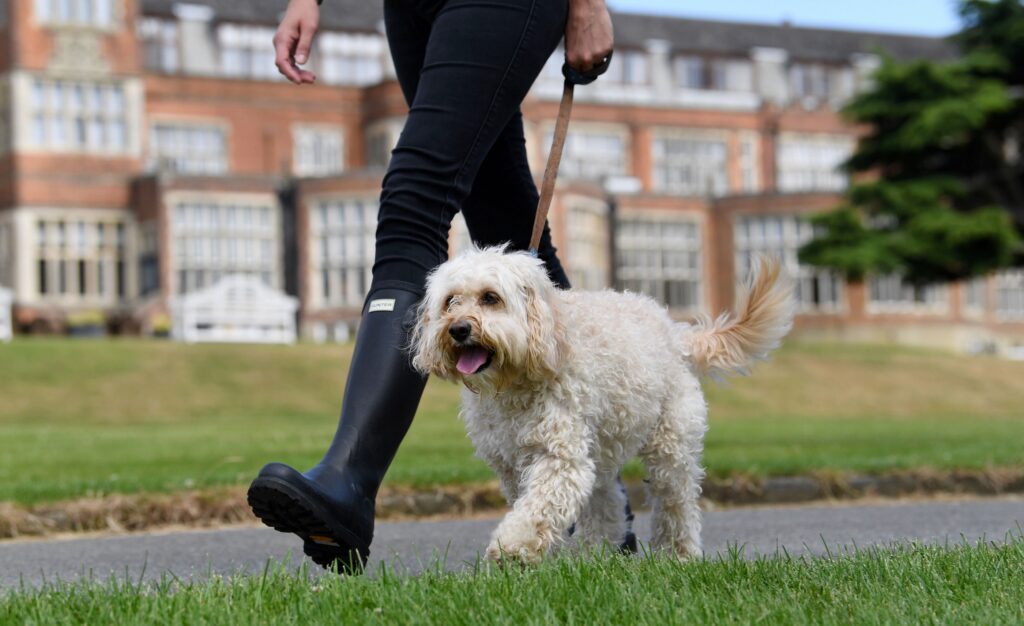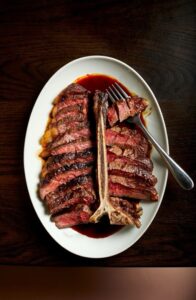England’s favourite dog breeds of the year and what vets truly think of them

It’s no secret, we are a nation of dog lovers, with an estimated 10.6 million pet dogs in the UK as of 2024. New figures from vet charity, PDSA have revealed which breeds have stolen our hearts this year, with a round-up of the top five most owned breeds in England.
PDSA Vet Nurse Gemma Renwick shares which breeds are the most popular pooches:
Crossbreed
“Taking the top spot, the Crossbreed! They may not be a ‘breed’ as such, but they’re still the most popular choice for UK dog owners, a combination of any of the nation’s favourite breeds. Crossbreeds are generally thought of as healthier than pedigree dogs, as many purebreds have been bred for appearance over health creating problems due to close breeding in many breeds. However, a recent study* has shown that the so-called designer crossbreeds seen so much these days appear to be at the same risk of common health problems as purebred dogs, potentially due to being more closely bred for a specific appearance.
“Which breeds make up the Crossbreed will play a part in the dog’s lifespan and what health concerns they may be predisposed to. Just as when looking at purebred dogs, when considering adding a Crossbreed to your life, it’s important to make sure both parents are healthy. Be sure to look for a breeder who provides health testing for the parents for any specific breed health concerns.
Olive the Crossbreed
Labrador Retriever
“Second place goes to the good old Labrador, known as real foodies, Labs may eat anything and everything. This personality trait can be a cause for concern if your Lab struggles with weight, as obesity is the cause of many other health problems in our pets.
“Labs are typically sociable, fun-loving, devoted and affectionate family dogs, but are often used as working dogs. Having originally been bred as Gundogs, they require a good amount of exercise, scent work, and mental stimulation to remain happy and healthy.
As well as being prone to obesity, the breed-related health problems to look out for with Labs include:
Hip and elbow dysplasia – both joint issues, which will eventually lead to arthritis
Progressive retinal atrophy – gradual deterioration of sight, symptoms can start with night blindness and progress to total blindness
Labrador Ronnie
Cockapoo
“In third place, the Cockapoo, who has risen in popularity over recent years – the combo of the Cocker Spaniel and the Poodle. Cockapoos tend to be loving, intelligent and high energy, as both parent breeds usually share those traits, though as with all dogs, individual personalities and behaviour will depend on their upbringing and experiences. While their coat type can vary, Cockapoos are often prone to tangles and matts and will need regular grooming. Some of the breed-related health problems to look out for that the Cocker Spaniel and the Poodle parent may pass on include:
Hip dysplasia
Skin and ear conditions, including allergies
Eye conditions including cataracts and glaucoma (increased pressure in the eye)
Luxating patellas – the kneecaps slipping temporarily out of place
Addison’s- a condition caused by the body not producing enough cortisol hormone.
Epilepsy – a brain disorder which can lead to seizures.
German Shepherd Dog
“Fourth on the list, the German Shepherd, a favourite for working dogs in the Police force, as they are intelligent and easy to train. Due to their nature, they require a good amount of exercise, scent work, and mental stimulation to remain happy and healthy, but can also make loving family pets. The breed-related health problems to look out for with German Shepherds include:
Hip and elbow dysplasia
Canine Degenerative Myelopathy (DM) – also known as Chronic Degenerative Radiculomyopathy (CDRM) causes weakness to back legs leading to paralysis.
Anal furunculosis – a painful disease that causes ulceration around a dog’s bottom.
Eye diseases – including cataracts and multifocal retinal dysplasia.
Epilepsy
English Cocker Spaniel
“Last in the top five, the English Cocker Spaniel. They are generally lively dogs who love to play. They’re known for being ‘happy’ dogs and many owners report their tails are always wagging! Although originally bred as Gundogs, Cocker Spaniels have become popular family pets, however, they still require a good amount of exercise, scent work, and mental stimulation to remain happy and healthy. The breed-related health problems to look out for with Cocker Spaniels include:
Hip dysplasia
Atopy (multiple allergies)
Ear and eye problems
Gemma adds: “We all love dogs, and they bring so much joy into our lives. Whilst the breed we might all view as a ‘favourite’ is down to personal preference, we’d always urge potential owners to research breeds thoroughly, and if purchasing, opt for a breed and puppy that has had full health testing, and hasn’t been bred to have extreme features. Finally, remember that whilst certain breeds may have certain traits, each dog is an individual, and the way that pet is bred, brought up, cared for and trained will have a huge impact on their personality, health and behaviour.”




